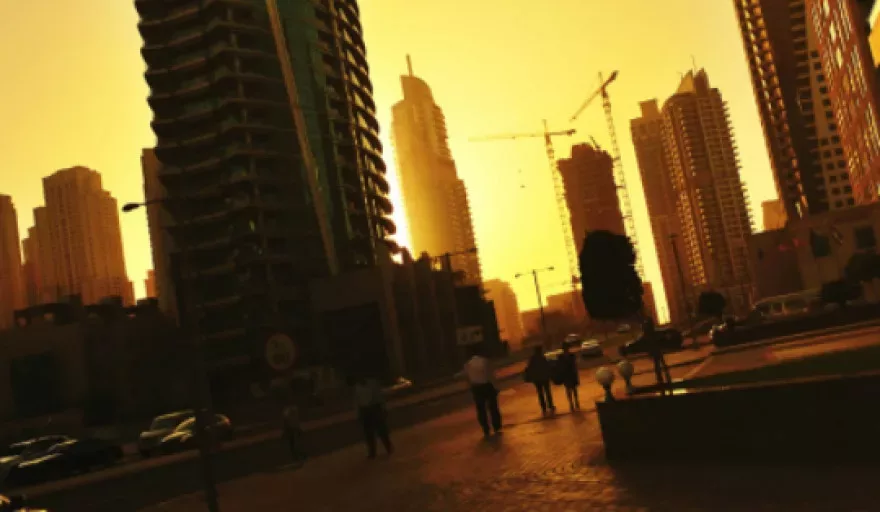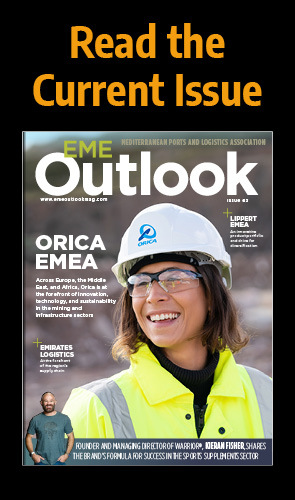In the run-up to Expo 2020, the Emirate of Dubai published a new public-private partnerships law in September 2015, designed to allow it to tap private sector funding and expertise to implement infrastructure projects in the Emirate. The PPP Law will come into force on 19 November 2015 and is a welcome development – while PPP structures have previously been used successfully in the UAE in projects such as Zayed University in Abu Dhabi, and extensively in the power and water sectors in IPPs in Abu Dhabi and Dubai, market participants expect the PPP Law to generate significant project activity and to attract substantial interest from foreign investors.
WHICH PROJECTS DOES THE NEW LAW APPLY TO?
The PPP Law is of deliberately broad application, stating that it will apply to PPP projects, “regardless of their type, form or nature of activity”, originated by Dubai government agencies subject to the general budget of the government. It may also apply to off-budget bodies with the approval of the Supreme Fiscal Committee. Power and water projects are, however, excluded from the scope of the PPP Law and will remain governed by existing legislation.
The Roads and Transport Authority (RTA) was at the forefront of the PPP Law. The RTA’s Union Oasis Project, a five towers project above Union Square Metro Station, will be one of the first projects to use the new Law, with a tender deadline of April 2016 announced. The Law may also be used for the expansion of the Al Maktoum International Airport, which with a $32 billion development budget, is anticipated, at the time of completion, to become the largest airport in the world. Dubai’s Expo 2020 will also offer numerous opportunities for the private sector, such as the 14.5 kilometre Metro Route 2020 from the existing Nakheel Harbour & Tower station to the Expo 2020 site. The PPP model may well be used to procure such projects.
WHAT IMPACT WILL THE PPP LAW HAVE ON FUTURE PROJECTS?
The publication of the PPP Law indicates strong political support for public-private partnerships in Dubai, which is key to any successful PPP policy. This support, and the new approach that underpins it, is articulated succinctly in the Law which provides simply that the aim is to encourage the participation of the private sector in the development of projects.
Sitting behind this stated aim is a desire to enable the Dubai government to take advantage of private sector expertise, to ease the financial burden and financial risks of capital intensive projects on the government’s budget and to offer (and evidence) the best value for money to the community.
This new policy is a very welcome initiative; a strong relationship between the Dubai government and the private sector will be key to address the infrastructure needs of the Emirate over the medium and long-term.
WHAT IMPACT DOES THE PPP LAW HAVE ON BIDDING?
The PPP Law describes a transparent bidding process led by the relevant government agency. It provides that submitted offers will be evaluated by the Partnership Committee, an internal committee formed by the government agency for each project, with the project being awarded to “the most feasible offer technically and financially among the submitted offers”.
It also allows bidding developers to form a consortium, and provides that if this is done the offer should be made in the name of the consortium, unless specified otherwise in the invitation to bid.
The PPP Law also sets out clear consequences for not following the rules of the process: any offer received from sponsors not meeting the conditions contained in the invitation to bid will be rejected and if only one offer is submitted, or only one offer remains after other offers have been disqualified, the bidding process may be cancelled by the Partnership Committee.
It should be noted, however, that government agencies do not need to follow a competitive tender process and unsolicited PPP proposals are possible.
WHAT ARE THE NEW APPROVAL REQUIREMENTS?
The PPP Law sets out a sliding scale (by reference to total project costs) of requirements for Government approvals:
· Projects with a total cost of up to $54 million to be incurred by the government agency through the partnership contract must be approved by that agency’s director general
· Projects with a total cost of between $54 million and $136 million to be incurred by the government agency through the partnership contract must be approved by the Department of Finance
· Projects with a total cost in excess of $136 million to be incurred by the government agency through the partnership contract must be approved by the Supreme Fiscal Committee
The PPP Law specifies that the project company must be licensed to operate in Dubai and contemplates that in most cases the project company must be a special purpose vehicle. The new Law does not specify whether the project company must be incorporated as a local entity under the requirements of the UAE commercial companies law or whether it can be established as a free zone entity.
Should it be permissible to establish the project company as a free zone entity, foreign investors should note that a key limitation of a free zone entity is that it is generally permitted to conduct business solely within its relevant free zone, therefore limiting this structure to PPP projects strictly contained in that free zone.
The PPP Law does not relax requirements requiring local ownership of businesses established as limited liability companies (LLC), therefore it should be assumed that project companies incorporated as an LLC will have to comply with the so called 51/49 rule which prevents foreign investors from owning more than 49 percent of UAE companies; although it is possible for the constitutional documents of the LLC to contain certain provisions in order to protect the interests of a foreign minority shareholder.
The PPP Law also provides that the government agency may hold an interest in the project company, which would impact the status of the project company under Dubai law, but does not specify the proportion nor the conditions of such participation.
STRUCTURAL CONSIDERATIONS?
The Law allows for a wide range of potential PPP structures. It provides that BOOT, DBO, lease and concession agreements may be used together with any other structures approved by the Supreme Fiscal Committee.
The relationship between the project company and the government agency responsible for the PPP project will be governed by a partnership contract. Key features of the partnership contracts are described in the PPP Law including the scope of works; ownership of assets and intellectual property rights; responsibilities for obtaining necessary approvals; offtake or service prices; rules on supervision of the project company by the government agency; environmental requirements; termination rights of the government agency and penalties imposed on the project company; and the transfer and decommissioning of the project.
Private sector investors will also note that, while the Law does not yet impose restrictions on finance sources, it does expressly state that the obligations under the financing arrangements will be borne by the project company alone. The absence of restrictions on finance sources is a positive feature and should allow international sponsors to combine multiple sources of finance such as commercial lenders and export credit agencies.
Finally, the PPP Law provides that partnership contracts with government agencies can be entered into with a term of up to 30 years (and, in some exceptional cases, longer) from the date of signing the partnership contract. This is in line with practice for PPP projects elsewhere and should certainly allow for the private sector to raise long term finance and realise a return on its investment.
THE FUTURE OF DUBAI?
The PPP Law is a positive development that will certainly attract the attention of international investors with the many opportunities that Expo 2020 will bring to the Emirate. It is a detailed and clear legislation that offers the legal framework necessary for a successful PPP policy and is a step forward towards addressing the infrastructure needs of Dubai in the future.















